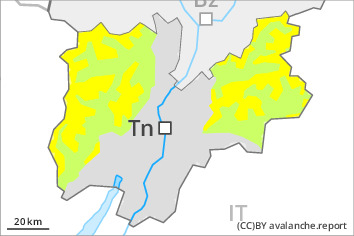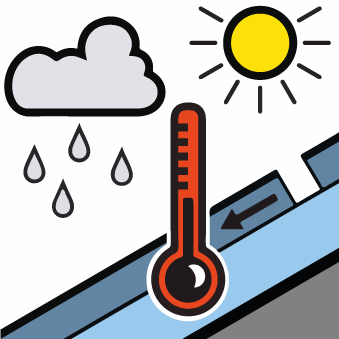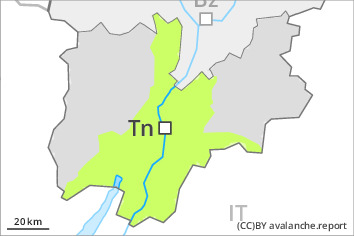
Danger level
 | 2400m |
|  |
|  | ||||
|  |
|  |

Weak layers in the old snowpack can be released in isolated cases in particular on steep shady slopes. As the day progresses more moist and wet snow slides are possible.
Individual weak layers exist in the snowpack. The avalanche prone locations are to be found in particular in gullies and bowls, and behind abrupt changes in the terrain. Avalanches can penetrate even deep layers and reach medium size in isolated cases.
As a consequence of warming during the day individual wet loose snow slides are possible below approximately 2600 m. This applies especially on west, south and southeast facing slopes. Mostly avalanches are small.
Snowpack
dp.10: springtime scenario
As a consequence of falling temperatures and low relative humidity a crust formed on the surface during the night. In its middle, the snowpack is weak in some cases and its surface has a crust that is barely capable of bearing a load. Weak layers in the old snowpack can be released in isolated cases.
Sunshine and high temperatures will give rise as the day progresses to softening of the snowpack in particular on steep sunny slopes below approximately 2600 m.
Tendency
Slight decrease in avalanche danger.




